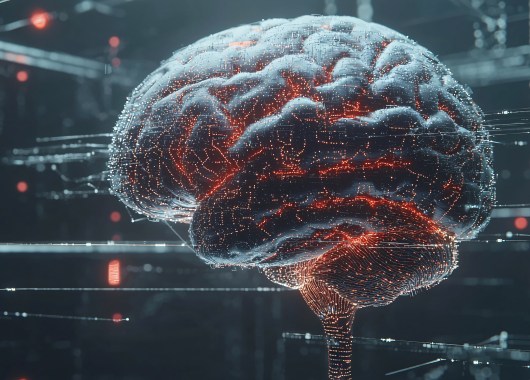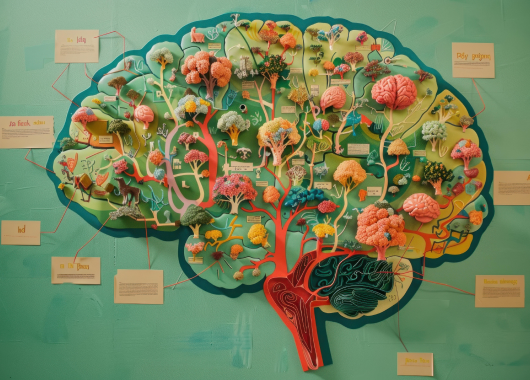The Neuroscience of Intelligence: How the Brain Processes Complex Information

Introduction
Have you ever wondered why some people are quick thinkers while others take more
time? The answer lies in how our brains process complex information. Intelligence isn't
just about solving puzzles or memorizing facts; it's about how efficiently our brains work
to understand, adapt, and respond to challenges. This article will explore how different
brain regions contribute to intelligence and how we process complex thoughts.
How the Brain Manages Intelligence
The brain has multiple regions that contribute to intelligence, but two are particularly
important:
- Prefrontal Cortex (PFC): Often referred to as the "thinking center," the PFC is responsible for planning, decision-making, and problem-solving. When you analyze a situation, this part of your brain lights up, helping you organize thoughts and make sense of complex information.
- Parietal Lobe: This area helps us understand numbers, patterns, and spatial awareness. It supports our ability to break down problems and process detailed information, contributing to tasks like solving math problems or visualizing concepts.
Neural Networks and Communication
Intelligence isn't just about individual brain regions but how well they communicate. This communication happens through neural networks-a complex web of connections that transmit signals across the brain. Efficient communication means faster information processing, making it easier to handle complex tasks.
Interestingly, intelligent individuals often have brains that work more efficiently, using fewer resources to process information. This means their brains are better at filtering out unnecessary details, allowing them to focus on what matters.
Working Memory: The Brain's Scratchpad
Think of working memory as a mental notepad. It's where we temporarily store and manipulate information, like holding a phone number in your head before writing it down. People with stronger working memory can manage multiple pieces of information simultaneously, which is a key aspect of intelligence. This skill helps in tasks like problem-solving, reading comprehension, and learning new skills.
Neuroplasticity: The Brain's Ability to Adapt
One of the most incredible features of our brain is neuroplasticity, the ability to form new neural connections. Each time we learn something new or practice a skill, our brains reorganize and strengthen these connections, making us more efficient at processing information. This adaptability is why we can improve our intelligence by engaging in challenging activities, like learning a new language or playing a musical instrument.
 The Role of Emotions in Intelligence
The Role of Emotions in IntelligenceIt's easy to think of intelligence as purely logical, but emotions play a huge role in how we process information. The amygdala, a small structure in the brain, handles emotional responses. When we're calm, our brain can process information more effectively. High emotional intelligence means being able to manage emotions, allowing for clearer thinking and better decision-making.
The Balance Between Creativity and Logic
Intelligence is a blend of both logical thinking and creativity. The brain has two main networks that contribute to this:
- Default Mode Network (DMN): Activated during daydreaming and creative thinking, helping us connect unrelated ideas.
- Executive Control Network (ECN): Responsible for focused, goal-oriented tasks.
Highly intelligent individuals can switch between these networks, enabling them to find innovative solutions while staying logical.
Lifestyle Factors That Influence Intelligence
Several lifestyle habits play a crucial role in brain function:
- Physical Exercise: Exercise increases blood flow to the brain, improving neural connections and enhancing problem-solving abilities.
- Nutrition: Foods rich in omega-3 fatty acids and antioxidants support brain health, aiding in cognitive performance.
- Sleep: During sleep, the brain consolidates information, making connections that improve learning and memory retention.
Conclusion
Intelligence is not just about having facts or figures; it's about how well our brains process, adapt, and connect complex information. From efficient neural networks to the balance between logic and creativity, intelligence is a dynamic and adaptable trait. By understanding how our brains work, we can make lifestyle choices that nurture and enhance our cognitive abilities, unlocking our true potential.
